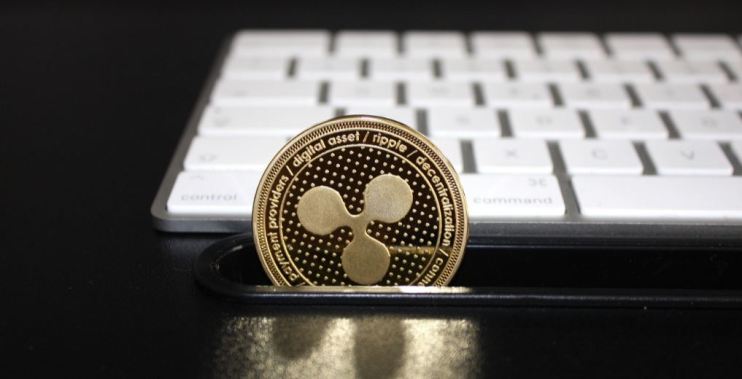Ripple notches landmark ruling with XRP as Google Play opens door for NFTs

Data from CryptoCompare shows that the price of the flagship cryptocurrency Bitcoin (BTC) moved sideways throughout the past week, starting it off at around $30,000 and jumping to $31,500 throughout it, before enduring a correction that saw the cryptocurrency move back to $30,200.
Ethereum’s Ether, the second-largest digital currency by market capitalisation, moved in a way similar to Bitcoin, starting the week at $1,850 and seeing a spike to the $2,000 mark throughout it. While Ether also corrected, it’s now trading at $1,920.
Headlines in the cryptocurrency space this week were dominated by a landmark ruling in the legal battle between the US Securities and Exchange Commission (SEC) that was started back in 2020, when the regulator sued Ripple for alleged violation of US securities laws, arguing that the firm sold XRP without prior registration with the agency.
In the ruling, a federal judge in New York determined that the XRP token is “not necessarily a security on its face,” and noted that XRP was only deemed a security when Ripple sold it to institutional investors years ago, but not to the public.
Following the ruling, a number of cryptocurrency exchanges serving users in the United States relisted XRP. These included Gemini, Coinbase, and Kraken. Others, such as OKX, weighed in on the pivotal court ruling but did not announce plans to resume trading of the token
The ruling came just days after the SEC, in its battle with the Nasdaq-listed cryptocurrency exchange Coinbase, argued the exchange was aware of potential legal violations years before they came into the regulatory crosshairs.
This legal dispute stems from allegations made by the SEC last month, claiming that Coinbase was functioning as an unauthorized broker, clearinghouse, and exchange. The SEC alleges that Coinbase facilitated the trading of at least 13 different cryptocurrencies that are not registered as securities.
Notably, Coinbase is seen as a safe and reliable exchange. Last month, U.S. exchanges accounted for 9.49% of the global Bitcoin (BTC) trading volume, according to CCData’s latest Exchange Review report, with Coinbase commanding a 61% share of the American Bitcoin volume.
The SEC argued the exchange knew it was violating the securities laws by offering certain cryptocurrencies and rejected Coinbase’s legal arguments, such as the major questions doctrine, the lack of a formal contract, and the effect of secondary markets. It asked the court to dismiss Coinbase’s motion for judgment.
Another legal case was started over the past week after cryptocurrency exchange Gemini launched legal proceedings against Digital Currency Group (DCG) and its founder, Barry Silbert, alleging fraud through its subsidiary, Genesis.
The suit alleges that Genesis “induced the Gemini Earn Lenders to lend by touting Genesis’s purportedly robust risk-management practices and a supposedly thorough vetting process of the counterparties to which it re-lent the assets,” and argues these claims “were lies.”
It also implicates Silbert for allegedly pushing Gemini to maintain its Earn program, despite his alleged awareness of Genesis’s severe financial distress. The suit further alleges that he took steps to hide a billion-dollar shortfall on Genesis’s balance sheet. Genesis declared bankruptcy in January 2023.
Google Play opens the door for NFTs in apps and games
In a notable policy shift, Google Pay has started allowing app developers to use digital assets like non-fungible tokens (NFTs) in their applications and games.
The updated policy mandates that developers opting to offer tokenized assets must clearly indicate the existence of blockchain-based elements in their apps through the Play Console.
Google Play’s Group Product Manager Joseph Mills wrote in a blog post that the updated policy could empower partners to reimagine “traditional games with user-owned content to boosting user loyalty through unique NFT rewards.”
While Google opened the door for more NFT-related innovation, Singapore’s Sovereign wealth fund Temasek revealed it’s avoiding investments in cryptocurrency-based firms in the midst of the regulatory turbulence surrounding the sector.
Temasek notably invested in the now-collapsed cryptocurrency exchange FTX, which allowed the firm to get “fee-based revenue without thinking [of] balance sheet risk or any trading risks.” Its Chief Investment Officer, Rohit Sipahimalani, said there’s currently “a lot of regulatory uncertainty” in the cryptocurrency space, making it harder for the firm to invest again in it.
Meanwhile, the Bank of International Settlements (BIS), a grouping of the world’s major central banks, has released a report to the finance ministers of G20 nations asserting that the “inherent structural flaws” of cryptocurrencies render them unfit to serve as a monetary tool.
Francisco Memoria is a content creator at CryptoCompare who’s in love with technology and focuses on helping people see the value digital currencies have. His work has been published in numerous reputable industry publications. Francisco holds various cryptocurrencies.
Featured image via Pixabay.